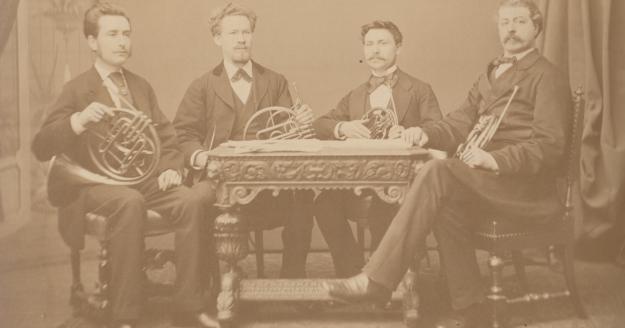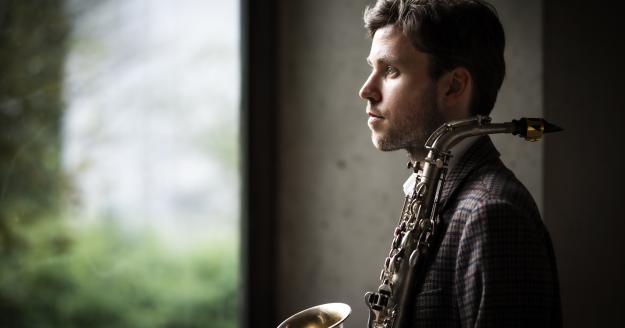Billiet Jeroen. Gevaert’s School of Arts. Het paradigma van het pittoresk-instructief museum en de Brusselse hoornklassen tijdens de laat-romantische periode.

In de tweede helft van de negentiende eeuw ontwikkelde het Koninklijk Conservatorium Brussel zich tot een laboratorium van ideeën over muziekeducatie en -uitvoering. Dit nieuwe opleidingsmodel, in grote mate ontwikkeld door François-Auguste Gevaert (1828-1908), werd geruggesteund door de uitbouw van een instrumentenmuseum, een onderzoeksbibliotheek, en een performante Société des Concerts gewijd aan de uitvoering van muziek van oude meesters. Het door Gevaert gesteunde paradigma van het conservatorium als onderdeel van een als ‘instructief pittoresk museum’ ingerichte publieke ruimte valt samen met een voorheen ongeziene bloeiperiode van het Belgische muziekleven in de laat-romantische periode.
Maar hoe vertaalde Gevaerts hoogstaande School of Arts zich naar jonge orkestmusici-in-opleiding? In de Brusselse hoornklas van Louis- Henri Merck (1824-1900) kenmerk deze periode zich door ingrijpende veranderingen in repertoirekeuze, instrumentgebruik, repertoire en specifieke onderwijsmethodes speelstijl. Deze Brusselse aanpak leidde in de laatste decennia van de negentiende eeuw tot het onstaan van een grote diaspora Brussels-opgeleide musici in binnen- en buitenlandse orkestformaties en onderwijsinstellingen. Het voorliggende project benadert incentives, social-culturele context, educatief repertoire, stijlevolutie, onderwijsmethodiek en disseminatie van het hierboven beschreven vanuit het oogpunt van studenten uit de hoornklassen tijdens de ‘lange’ romantische periode, met een focus op de periode van Gevaerts directeurschap.
Kurt Bertels: Towards a "Herstory" of the Saxophone: A Subaltern History of Black and White Women Saxophonists in the North Atlantic (1870-1940)
Dit project onderzoekt vrouwelijke saxofonisten in de Verenigde Staten en Europa aan het eind van de 19e en het begin van de 20e eeuw. Zowel zwarte als witte vrouwen voelden zich sterk aangetrokken tot Adolphe Sax’ revolutionaire uitvinding. Het project toont aan dat vrouwen de subversieve status van het instrument omarmden om hun identiteit uit te drukken en tegelijkertijd traditionele muzikale conventies te doorbreken. In tegenstelling tot de gevestigde opvattingen stelt het project de hypothese dat de vroege saxofooncultuur niet uitsluitend werd gedomineerd door witte mannelijke uitvoerders uit Frankrijk, maar dat vrouwen ofwel het Franse uitvoeringsparadigma herinterpreteerden of zelfs een eigen saxofoonpraktijk ontwikkelden. Zo werden zij het middelpunt van publieke verbeelding en kritiek binnen een normatieve tijdsgeest. Om deze centrale hypothese te onderzoeken, zal ik de receptie van vrouwelijke saxofonisten van de eerste generatie bestuderen in het licht van historische opvattingen over muzikaliteit, gender en ras, de individuele uitvoeringspraktijken en saxofoonaesthetiek van prominente artiesten analyseren en een historisch geïnformeerde uitvoering creëren van het repertoire van deze vrouwen.
